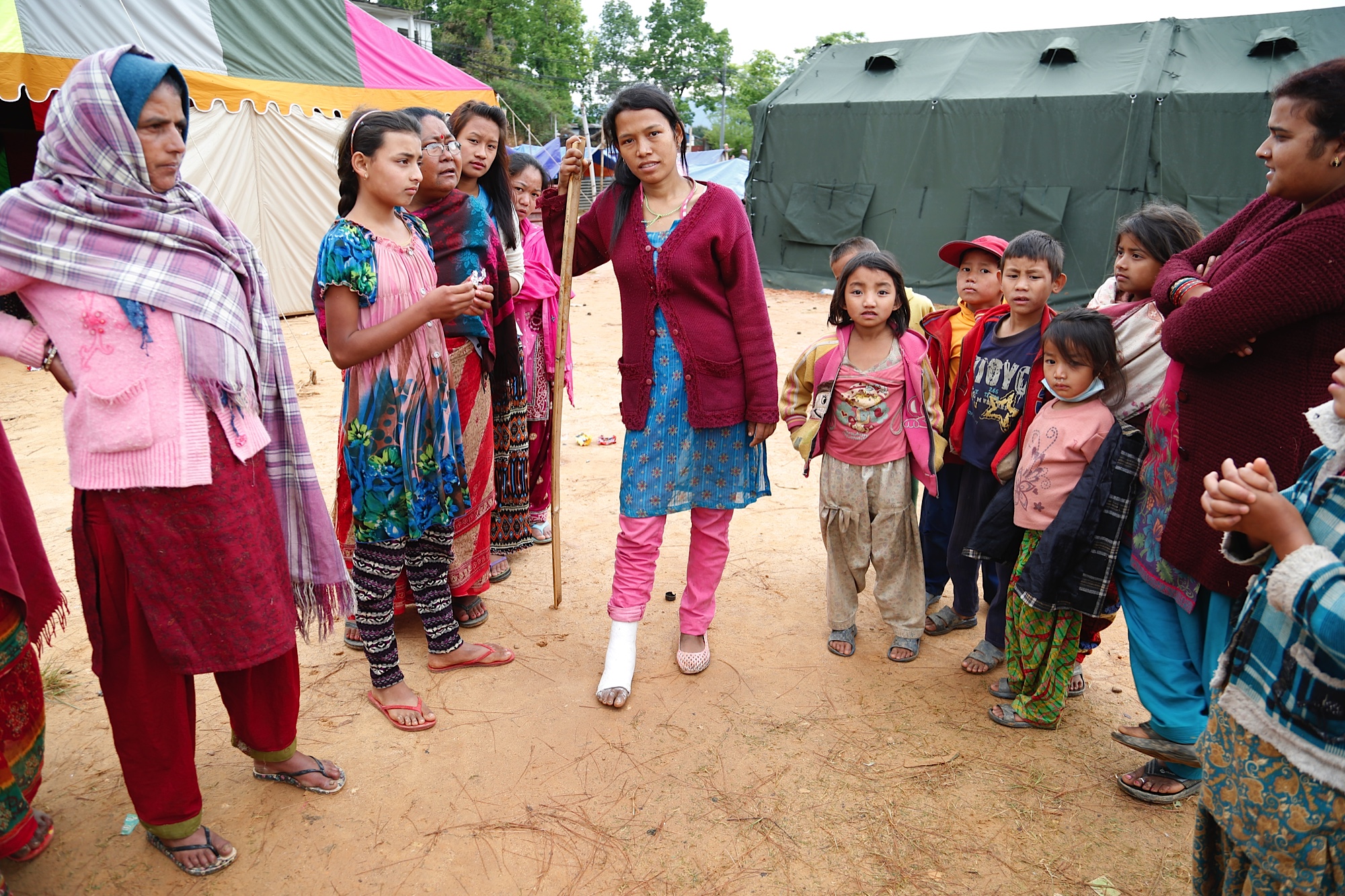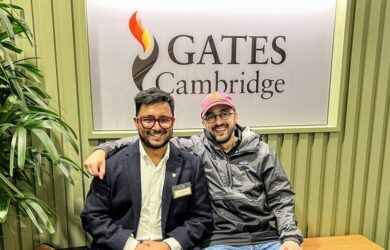
As a survivor of the April 2015 Nepal Earthquake, Wilatluk Sinswat has been involved in the relief & recovery efforts.
I came to believe that providing income-generating opportunities, particularly for women, would be an effective way to support individuals’ and communities’ recovery and future development in a more sustainable manner.
Wilatluk Sinswat
My husband and I were in a furniture workshop in Kathmandu when the first earthquake struck at midday on Saturday, April 25th, 2015. This quake was relatively small, a warning sign.
My husband quickly led me to an open field, before going to fetch our son who was sleeping in our relative’s home. This was when the 7.8 magnitude earthquake struck Nepal. After our family finally reunited, we camped out in the open space as the aftershocks continued.
As night fell, the temperature quickly dropped. Warm drinks were distributed by fellow survivors. By dawn, temporary shelters, made out of bamboos and tarpaulin sheets, were already being built by a group of people.
My son and I flew to Bangkok three days later while my husband stayed in Nepal to help. Upon my arrival, I started sending some tents and tarpaulin sheets to Nepal. These were collected at Tribhuvan airport in Kathmandu by volunteers from the Himalayan Area Development Centre, an NGO where I am an advisor, and distributed to those affected by the earthquake.
Within the first 15 days, I raised enough funds to send over three tonnes of relief materials to Gorkha, the epicentre of the earthquake. Five weeks later, I returned to Nepal, and was humbled by the strength and serenity of all the survivors I met. Most of them, particularly the women, expressed their wishes to rebuild their homes with their “own two hands” and did not expect any handouts.
With these sentiments in mind, I came to believe that providing income-generating opportunities, particularly for women, would be an effective way to support individuals’ and communities’ recovery and future development in a more sustainable manner. I felt at first that the natural next step would be to write a grant application. However, with the uncertainty that we may not have received the funding, I decided to use my savings to get the project started.
With our own two hands
The initiative would provide skills training and offer incomegenerating opportunities for women. I took the phrase “with our own two hands” quite literally and began exploring crafts that would connect well with Nepalese women and be relevant to domestic and global markets. Wool crafts came first on the list, as for centuries women in the Himalayas had been making rugs and coats from the wool of their sheep.
While a majority of women are familiar with wool crafts, wool needle felting is still a novel technique, so I decided to introduce needle felting as a value-added craft. I organised a weeklong training session on needle felting in Kathmandu in September 2016, with a designer/ tutor invited from the UK. The training was open to interested women free of charge. We had expected about 15 participants, but 40 women turned up. We welcomed everyone and had to promptly restructure and extend the training period.
After the training, we continued working with a smaller group of women to further train them to be instructors and lead artisans. We began the trial production in October and sent our pilot order to Christmas fairs in the UK. The products were well received, selling out and generating encouraging feedback. In honour of my late Nepalese motherin-law, who was an orphan from the age of five and who became a widow and single mother of three boys at the age of 25, I named this project Nauseni Women Initiative, which trades needle-felted gifts and decorations under the name NAUSENI (pronounced now-sinee).
We have conducted two outreach training sessions and are connecting with wool farmers in Gorkha to share with them methods of preparing raw wool for felting. NAUSENI’s team comprises nine full-time members, with a network of over 15 women, in their twenties through sixties, from Gorkha and the Kathmandu Valley. Hardworking, resilient, and creative, after three months of training and without any instructions, the team collectively invented a new method that would speed up a part of the creation process.
The result of their self-initiated collaborative efforts was increased efficiency and improved quality of craftsmanship. I am excited to discover what lies ahead in my journey with the enterprising women of Nepal.
*Wilatluk Ging Sinswat [2001, Thailand] did a PhD in Development Economics. Wilatluk is a development practitioner with experience working in public sector and non-government organisations. Founder of Lanyt Theatre for Change, she is committed to participatory approach to development. Wilatluk is currently spearheading a women’s initiative in Nepal. Please visit www.nauseni.org for more information. Picture credit: Wikimedia Commons. This article is in the current edition of The Scholar magazine.

Wilatluk Sinswat
- Alumni
- Thailand
- 2001 PhD Land Economy
- St John's College












